Photographs: Manjulkumar/Wikimedia Commons BankBazaar.com
State Bank of India, India’s largest public sector bank saw its Q2 net profit fall by 35.08 per cent to Rs 2,375 crore (Rs 23.75 billion) for the quarter ending September 2013.
SBI reported a fall in net profit for the third consecutive quarter.
The only good news coming from the SBI camp was the rise in net profit of group companies like SBI Life Insurance reporting a 34 per cent increase and SBI Cards & Payment services net profit in H1 touching Rs 143.38 crore (Rs 1.43 billion).
…
What led to the crisis at State Bank of India
Q2 figures versus market estimates
With most market analysts expecting a profit of Rs 2,375 crore, State bank of India could muster a standalone net profit of Rs 2,375 crore compared to Rs 3,658 crore (Rs 36.58 billion) over the same period last year.
On the positive side of things, CASA Ratio for September remained strong at 43.58%.
Another hidden market sentiment that could give heart to a lot of public sector banks is the fact that overall savings bank deposits for SBI touched an all time high at Rs 445,443 crore (Rs 4,454.43 billion).
Although the results are the first by SBI since Arundhati Bhattacharya took over the reins of the bank, market analysts were disappointed overall as they expected an overhaul of the bad loans.
…
What led to the crisis at State Bank of India
NPAs and Mark to market (MTM) Driving Negative Sentiment
While the total income for the bank increased 12.89 per cent to reach Rs 37,199 crore (Rs 371.99 billion) compared to Rs 32,953 crore (Rs 329.53 billion) over the same period last year, the substantial increase in the non-performing assets (NPAs) damped the quarterly results exponentially.
Gross NPA witnessed an increase of 6 basis points reaching 5.64 percent from 5.56 percent from the last quarter.
Net NPAs also went up to 2.91 per cent from 2.83 per cent in the quarter ending June 2013.
The gloom in the overall economic scenario can be gauged from the fact that even with a 6 basis points increase in NPAs, the stock witnessed a rise of nearly 3 per cent after the announcement of the Q2 results, with market analysts and financial experts expecting far greater NPA figures.
…
What led to the crisis at State Bank of India
State Bank of India and the Road Ahead
Considering the State Bank of India holds a leading positioning in the banking space and is one of the leading public sector banks, the disappointing Q2 results point out the continuing gloom period in the Indian economy.
Financial experts feel that the policy of the previous chairman, Pratip Chaudhary to take over corporate accounts from competing banks by offering cheap lending rates has not helped the bank's cause.
Unless there is a fresh injection of positive sentiment in the economic health, SBI is likely to witness such sluggish results. Since SBI participates a lot more in priority sector lending, it is more prone to rising non-performing assets compared to private banks.
…
What led to the crisis at State Bank of India
Photographs: Reuters
SBI’s slippages moderate: Edelweiss Research
SBI’s slippages came in lower than anticipated at Rs 8,370 crore (Rs 83.7 billion), a sharp drop from the high of Rs 13,770 crore (Rs 137.7 bn) in Q1FY14.
Performance improved in agriculture, SME and retail segments and is guided to be sustainable by management. Problem sectors continue to be power (Rs 1,800 crore lumpy account), iron & steel and infrastructure (Rs 500 crore lumpy account).
Restructuring pipeline of another Rs 500-600 crore (Rs 5-6 billion) is under CDR, making us vigilant on asset quality trajectory even as SBI guided for further pain.
We are building in gross non-performing loans (GNPLs) of 5.3% by FY15 and credit cost of 110 bps over FY14-15.
…
What led to the crisis at State Bank of India
Photographs: Reuters
Edelweiss Research’s Outlook and valuation
Reeling under pressure of a weak economy, elevated credit costs continue to dampen SBI’s profitability.
Staff expenses led operating expenses too continued to run high.
However, stabilising Net interest margins (NIMs), stable retail liability franchise and lower dependence on wholesale provides comfort.
Adjusting for the non-banking subsidiaries of Rs 223/share, it trades at 0.9x FY15E adjusted book (consolidated). Maintain ‘BUY/SP’.

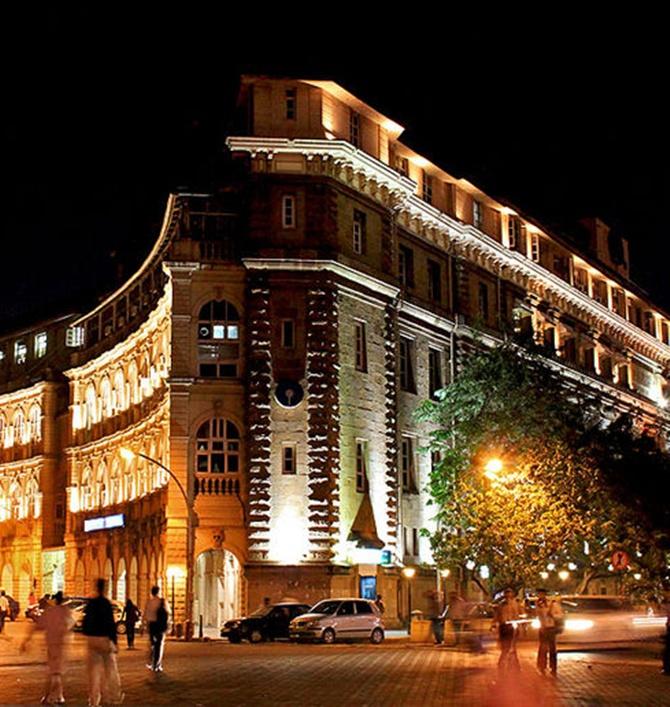
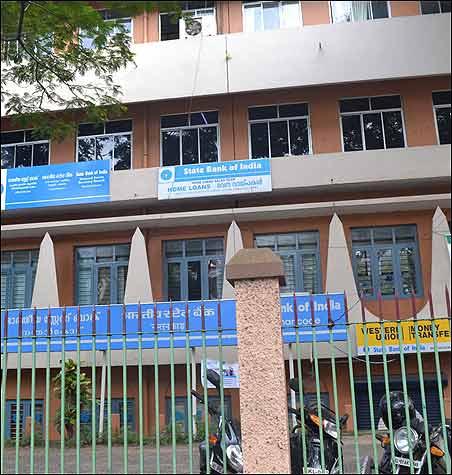
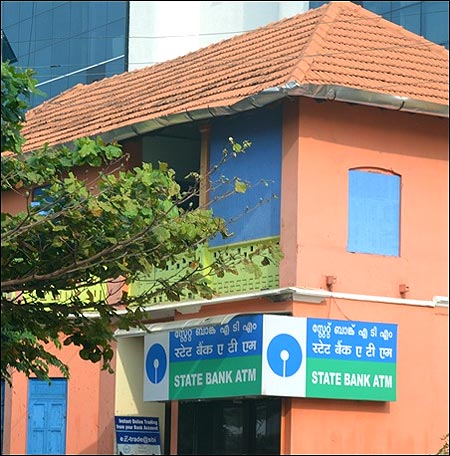
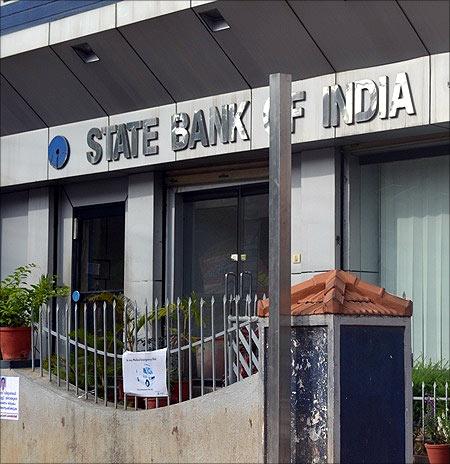
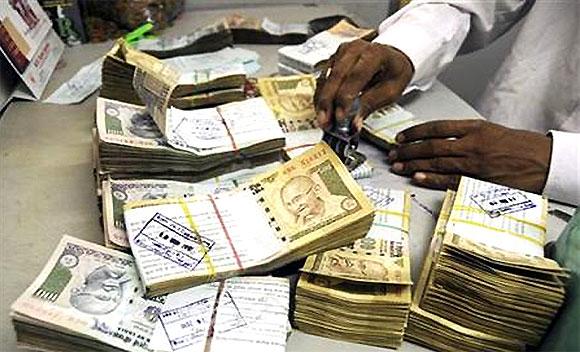
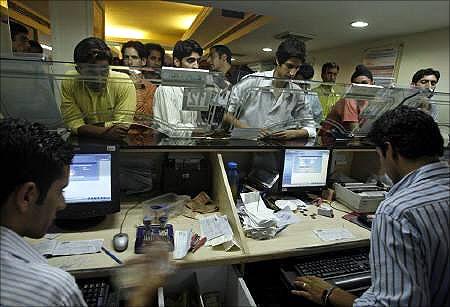
article